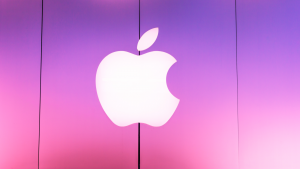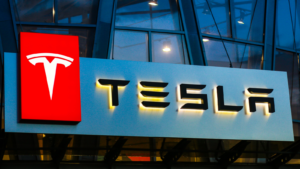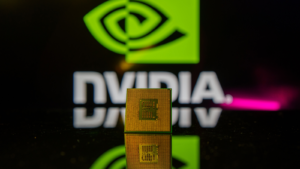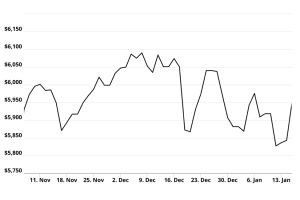
Fortune recently discussed the investor attraction to cult-like stocks whose customers are hopelessly devoted to these companies and their business models.
This particular article discussed Costco (NASDAQ:COST) and its cult-like relationship with its customers.
“Bulk staples like 48-count packs of batteries may be central to the Costco experience, but company brass understand that staples don’t inspire cultish devotion. They’ve learned that it’s the unexpected finds — that La Mer jar, or dill-pickle-flavored cashew nuts, or trendy new Birkenstocks — that stoke obsession,” Fortune’s Phil Wahba stated on May 28.
This cult-like status enabled Costco to grow its global membership from less than 90 million in 2016 to more than 127 million in 2024. More importantly, if you’re a Costco shareholder, its shares have appreciated 447% over the past nine years, significantly better than the S&P 500’s return of 174%.
As someone who religiously shops at Costco, I understand the loyalty. The staff is friendly, the products varied and the prices very reasonable. There is no algorithm trying to game the customer into spending more.
What other companies are cult-like stocks? Here are my three choices.
Apple (AAPL)

When Steve Jobs was running Apple (NASDAQ:AAPL), I don’t think there was any question that the CEO and his tech company had a cult-like following. When Tim Cook took over from Jobs in August 2011, there was a real concern that Apple wouldn’t have the same innovative vision that Jobs brought to the table. To Cook’s credit, he didn’t take the criticism personally.
“I don’t think anybody could be Steve. I think he was a once-in-a-hundred-years kind of individual, an original by any stretch of the imagination,” Cook told GQ in 2023. “And so what I had to do was to be the best version of myself.”
He’s been pretty good. When Cook took over, Apple shares were trading around $13. They’ve grown nearly 18-fold in the 13 years since. As a result, he became a billionaire and Apple became a $3.5 trillion stock.
Forbes published an October 2015 article entitled The Cult of Apple And The Church of Cook. In Cook’s 13-year run, the CEO has introduced the iPad, Apple Watch, AirPods, HomePod, Air Tags, Vision Pro AR/VR headset, Apple TV+, M1 processor and many other products and services.
Cook has created Apple’s closed ecosystem, enabling it to grow revenues and profits. These are used to find innovations for its cult-like customers.
This is why Buffett bought Apple stock in the first place. He couldn’t get over how vital the iPhone was to its customers. You can’t buy brand loyalty like that.
Tesla (TSLA)

I’ll be the first to admit that I held Tesla (NASDAQ:TSLA) CEO Elon Musk in high regard for many years. He’s a brilliant person full of boundless energy who is pursuing innovation. You can’t discuss the EV industry without mentioning his name. The same could be said for the space and solar industries.
In October 2012, I wrote an InvestorPlace commentary about why America needs more Teslas.
“Tesla’s ability to prosper and grow isn’t good just for shareholders, it’s good for America. Innovation made the U.S the world’s leading economy — and that’s what will keep it there,” I wrote in 2012.
It was only months into launching its Model S sedan at the time, which would take the company to the next level and ensure its survival. At the time, it had a negative cash flow of $266 million and $413 million in sales. In 2023, it generated $13.3 billion in operating cash flow from sales of $96.77 billion.
You could argue that Tesla’s cult is even greater than Apple’s hardcore following.
While the fight’s not over, it’s come a long way.
Nvidia (NVDA)

I would argue that Nvidia (NASDAQ:NVDA) is the newest addition to a short list of cult-like stocks. I’ve raved about CEO and co-founder Jensen Huang for years.
In May 2018, I included Huang on a list of the seven best-performing CEOs, which also included Reed Hastings and Jeff Bezos.
“Huang’s grown Nvidia from a tiny business with $1.2 million in annual revenue (1995) to $3.0 billion in net income, not revenue, in 2017,” I wrote in 2018.
“While its growth over the past eight years has been significant, it’s entirely possible that growth over the next eight years will be even greater.”
Funnily enough, my prediction has come to pass. In May, Nvidia reported Q1 2025 results that included a net income of $14.88 billion, 628% higher than Q1 2024 and five-fold better than its 2017 revenue for four quarters, not one.
In September 2021, I argued that Huang was America’s most influential CEO.
“You can argue all you want about the secular trends that Nvidia’s been riding — artificial intelligence, gaming, autonomous driving, etc. — but in the end, Huang and Nvidia can only play the cards it’s dealt,” I wrote in 2021.
“It seems no matter the hand, Nvidia has an answer to keep growing its business. But, of course, that’s the kind of business you want to own in perpetuity.”
Since my 2021 article, NVDA stock gained 514%, 20x better than the S&P 500.
It is now, for good reason, the cult AI stock.
On the date of publication, Will Ashworth did not have (either directly or indirectly) any positions in the securities mentioned in this article. The opinions expressed in this article are those of the writer, subject to the InvestorPlace.com Publishing Guidelines.
On the date of publication, the responsible editor did not have (either directly or indirectly) any positions in the securities mentioned in this article.




